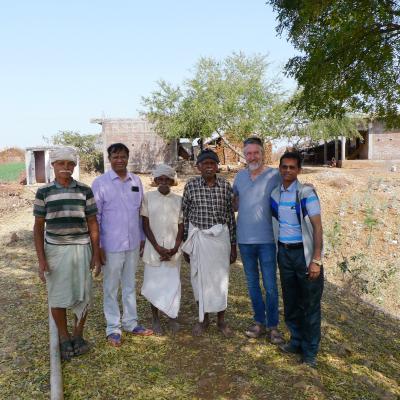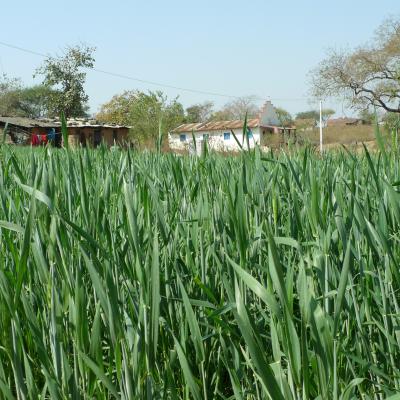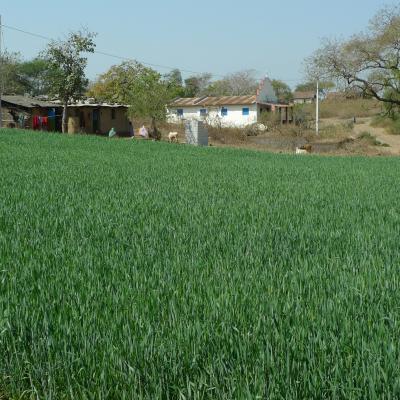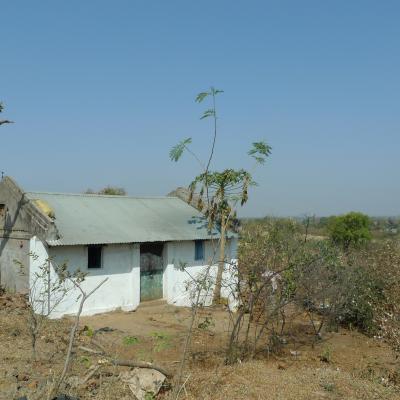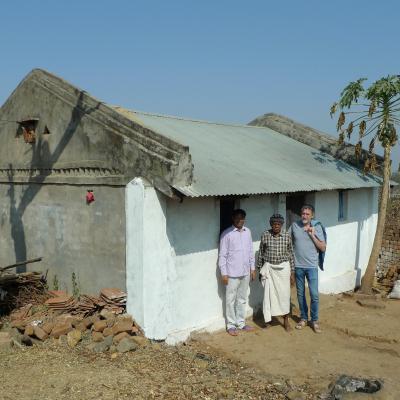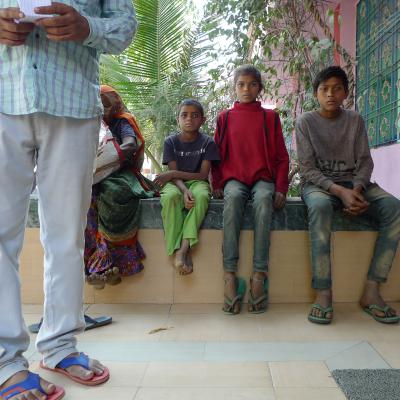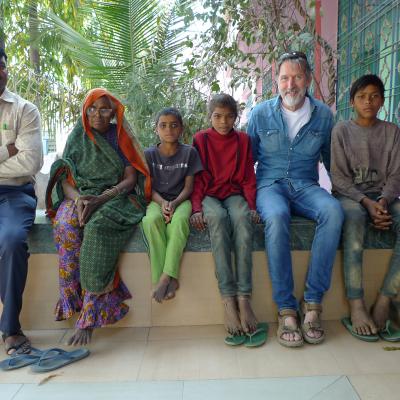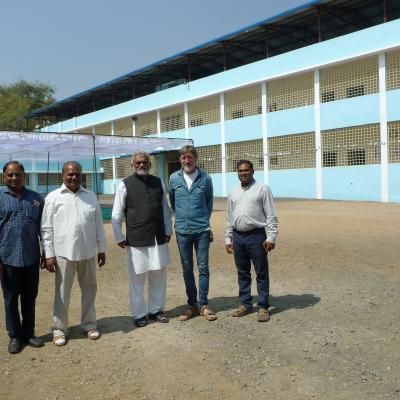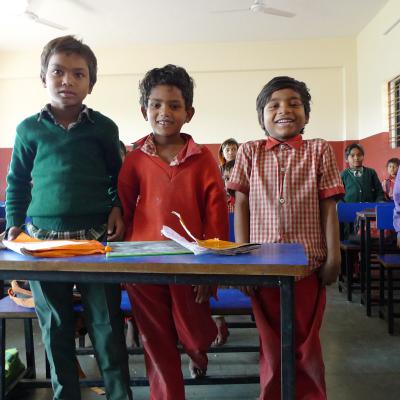Due to recurrent periods of drought, it is specially difficult to produce food. People fully depend on the nature with the annual rainfalls. There are no bigger watering systems or projects realized in this area. The result is malnutrition and an absolute live-threatening situation. Furthermore, the problem of a high rate of illiteracy is also a reason for the increasing indebtness and the discrimination of the tribes.
Especially seeds are extremely vital for the villagers. To buy seeds they lend money from shopkeepers or big landowners with exessive interests. Due to these bad deals they get in a hopeless dependence without any chance to escape. No wonder that the poor farmers become real slaves of these swindlers who demand 100 % to 200 % interest p.a.. In addition to these problems the farmers have to buy more and more of patented seeds, which are more expensive and need more special chemical fertilizers and pesticides. In this hopeless situation many of these poor farmers only see one exit of this "seed of death", which an increasing suicide rate among them sadly shows (watch a broadcast documentation about this miserable situation under "links" on this page)
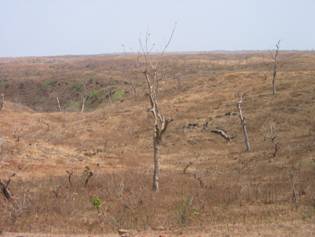 |
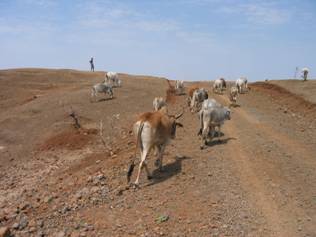 |
| Landscape during the dry season (with temperatures up to 50°C) | |
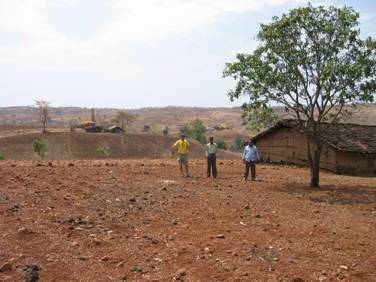 |
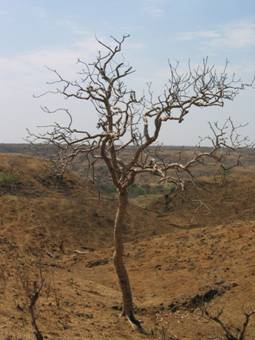 |
| Stony, dry ground | |
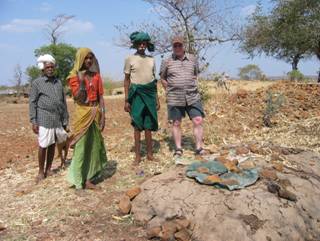 |
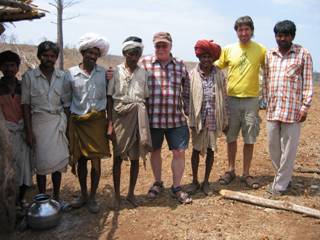 |
| Visiting farmers in the village |
The education of these poor, mostly illiterate farmers is another goal of "together". To serve this purpose we chose five very reliable persons with integrity from the villages and sent them to a training at "Maikal - Bio-Re" , an Indian partnership organisation of COOP Switzerland. This partnership stands for fair trade with pure biological products out of cotton. Our five trained farmers now constantly train the farmers in and around the mission of Dattigaon.
Around 150 farmers from the villages followed our invitation for a training course held in the mission of Dattigaon. The interest and enthusiasm of these simple men was simply impressive. The farmers were taught that sustainable farming with simple but effective new watering systems and the use of biological fertilizers and pesticides will bring a long-lasting effect and protect the environment and the health of the population. Through the use of natural seeds and a certificate in biological farming they can achieve better prices for their products on the market. Beside this support "together" is providing wells and pumps for sufficient watering, flour mills and seeds.
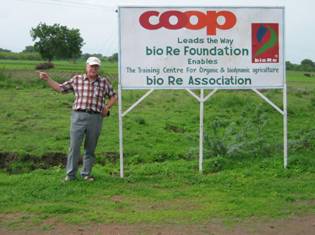 |
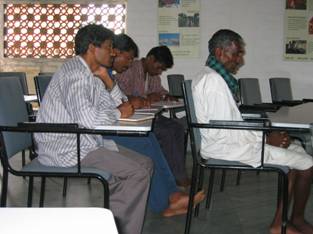 |
| At the training center of COOP – Bio Re | Our students |
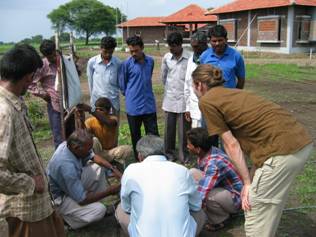 |
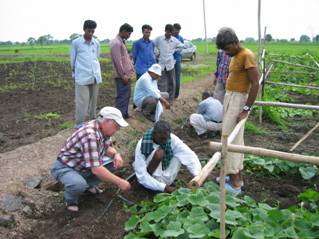 |
| Training on the field | |
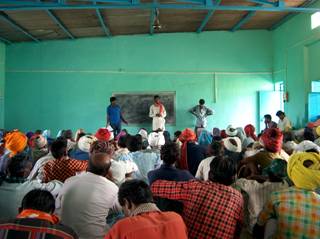 |
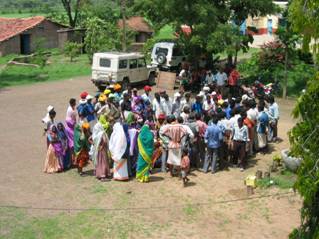 |
| Handing over the knowledge to 150 farmers in Dattigaon mission | |
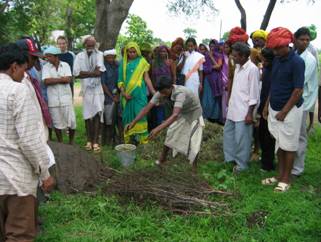 |
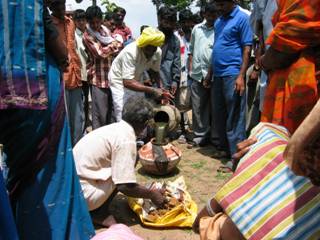 |
| Producing biological fertilizer and pesticides | |
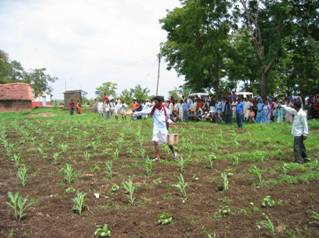 |
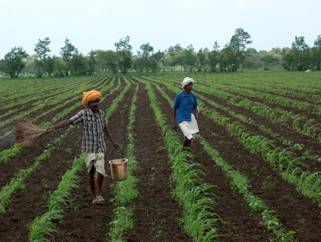 |
| Protecting plants by bringing out the self made pesticides | |
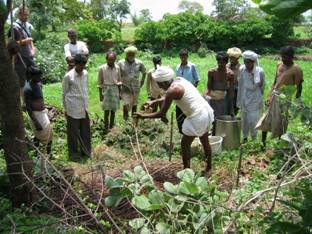 |
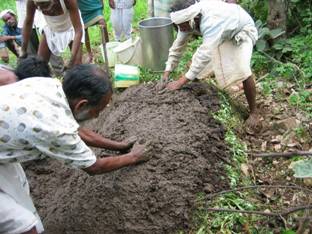 |
| Building a biological compost pile | |
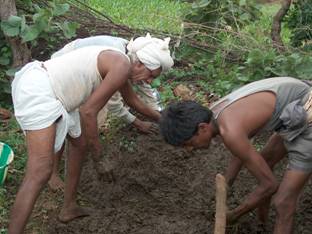 |
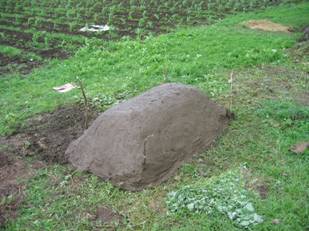 |
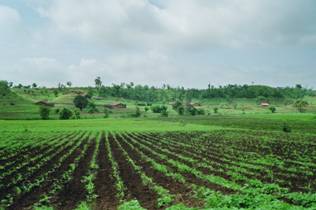 |
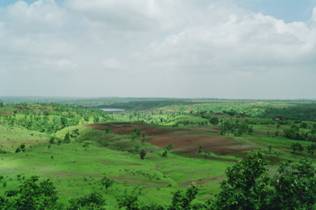 |
| Green landscape during rainy season | |
As a new project an agriculture training center in the Dattigaon mission is planned. There courses in biological farming for thousands of farmers could be held every year. The center would include a hostel and training´s building with sleeping rooms, kitchen and classrooms and a big workshop with all the farming equipments like pumps, mills, generators and a tractor. A newly founded farming association will manage the center and should improve the situation of the farmers and give them a strong voice to stand for their interests.
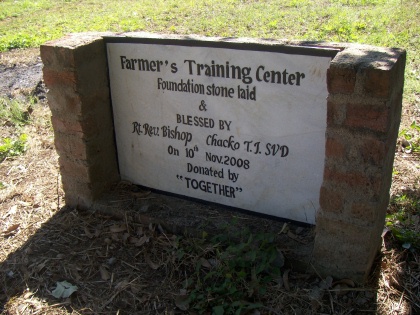 |
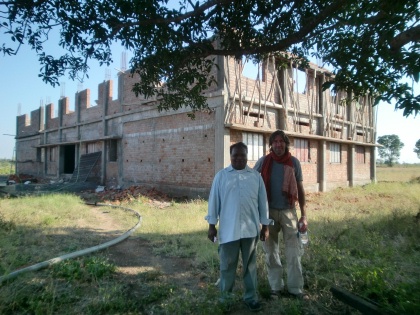 |
| Groundbreaking 2008 | Fr.Edward und Christoph before the shell |
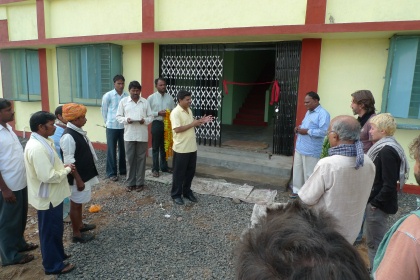 |
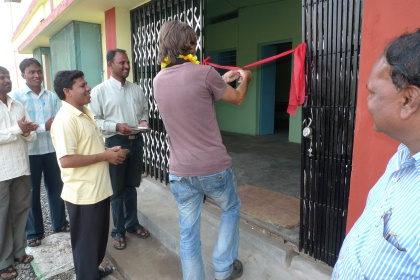 |
| Opening December 2010 | |
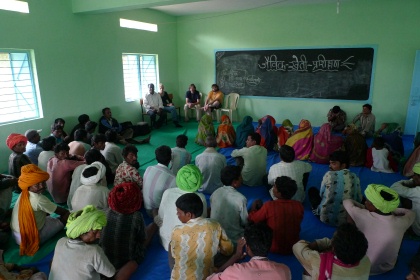 |
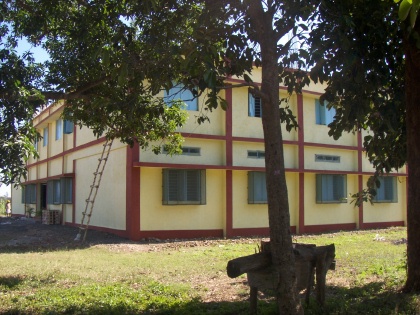 |
| First training | |
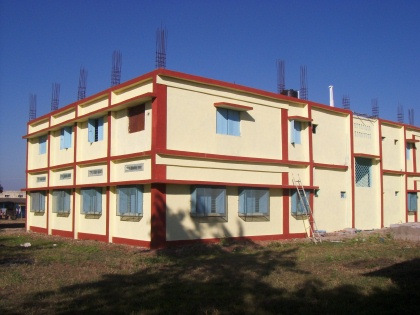 |
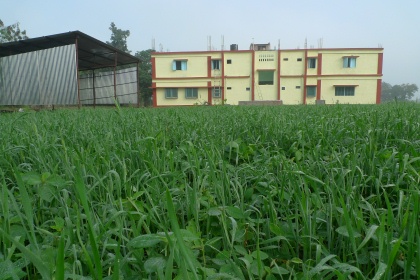 |
Tree nursery
Another important help from "together" not particular for agriculture but for nature and environment in general is our tree nursery, founded in 2006. For this nursery a special area in the mission of Dattigaon is used to plant local trees such as mango, tchiku, neem and many others. Most of these sorts are fruit trees and some like the neem tree are used for other purposes like the production of natural pesticides or medicine. The trees are given out to the villages after a certain growth. The villagers pay just a very low price only to cover the costs of the mission. The plants are a very welcome help to the households, because the fruits can be eaten and enrich the daily food or sold on the market to earn some money. To create a new consciousness for the nature and their resources is very important as well. Especially in this area, where after the destroying the forests the ground dries up constantly and the good earth is washed away during heavy rain showers. With their roots the trees keep the water in the ground, avoid erosion and give cool shadow.
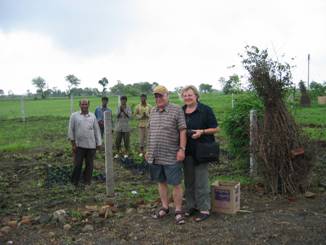 |
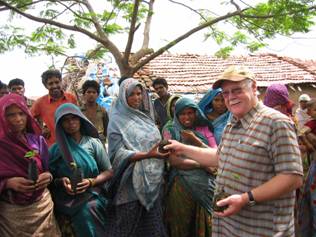 |
| Guido und Rita at the newly opened tree nursery | |
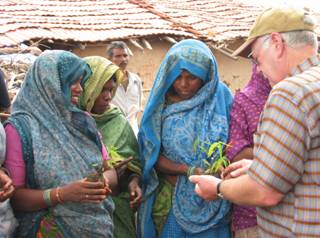 |
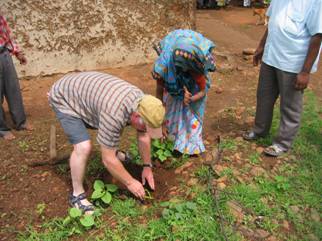 |
| Providing the first seedlings to women in the villages |
Food for Work
As an important direct help for the villagers we started initially in 2006 with our "food for work" programme. After a lack of rain in the previous year the situation turned very bad in the following dry season and a lot of people were starving in the villages. Especially for children, old people and the ones left in the villages without ability to find work in the big cities. To save them from hunger we started a programme where everyone got the chance to work for one day on the fields of the mission and to get a salary in the evening in form of rice, weed or corn. With this just salary the people kept their dignity and did not have to beg for food or money. To give food instead of money was to avoid buying alcohol with the salary, which is still a big problem in the villages.
Facing the huge number of poor villagers and the lack of food everywhere our programme was just a little help for a few. It was kind of hopeless and made us thinking, it makes no difference what we are doing. But by seeing the single person and a single life, our help makes a big difference. With our programme we could help at least a lot of people around the mission and we helped them to survive...
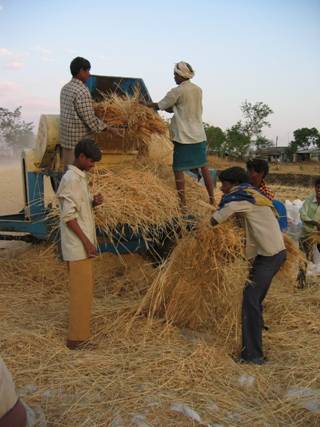 |
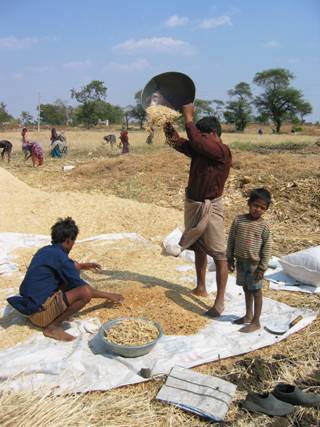 |
| Work in the fields of the mission | |
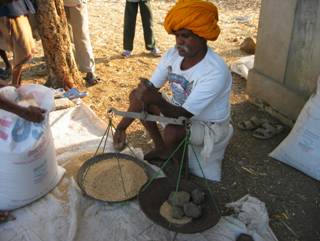 |
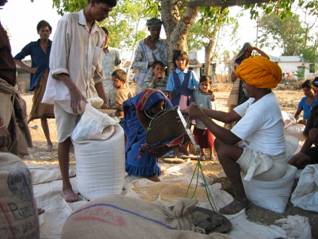 |
| Salary is paid out in food |


